
Emotion AI Reveals Which Tory and Labour Ads are Resonating Best With Voters

Alex Browne
You know it. I know it. We all know it. A General Election is coming to the UK.
When it will happen, we’re not sure just yet. But with Brexit looming and no party with a clear majority in Parliament, the stage has been set for one of the most important elections in UK history.
Already political parties across the UK have been put on an election footing, touring target constituencies and pushing out ads across their social media channels.
But which messages are resonating? Well, we thought it would be interesting to see what our pioneering Emotion AI technology revealed about how people really feel about political content.
At a time where political conventions are being thoroughly upended, and parties are aiming to reach voters long considered lost to them, it’s fascinating to uncover which messages are resonating with audiences, and why.
We kicked off by testing two videos – Labour’s “We’re Rebuilding Britain” and the Conservatives’ ‘My Vision for Britain.’
Each ad was exposed to a GenPop UK audience of 300 viewers, profiled by age, gender, location and political affiliation.
With Realeyes’ Emotion AI, which uses webcams to enable mobile devices and laptops to measure consumers’ emotions and attention levels, we analysed their emotional responses and attention levels to the videos in real-time.
We also asked participants to give their thoughts – in writing - about the ads and used Sentiment Analysis to score the overall positivity (or negativity) of their comments. Finally, we asked a series of survey questions.
Layered together, this data answers a whole host of questions. Are the videos compelling? Do they engage viewers emotionally? Do they shift perception? Who do they resonate with, and why?
Let’s find out. Here are the key takeaways:
1.“We Lost Control” Is A Very Effective Line
‘Vote Leave, Take Back Control.’ Of all the promises made and slogans pitched during the 2016 referendum campaign, this line is widely credited as the most effective. A masterstroke that has elevated its creator – Dominic Cummings – to ‘political genius’ status, the notion of losing (or gaining) control is a powerful one and, intriguingly, also pops up in Labour’s “We’re Rebuilding Britain”.
At 20-28 seconds into the Labour video, the narrator states, “we lost the factories… we lost the jobs… we lost control”.
It’s at this line that the audience’s attention peaks:
2. Labour’s Messaging Particularly Compelling to Viewers Who Didn’t Go To University
When we split the audience by education (people who went to university v those that didn’t), the difference is stark.
Viewers who didn’t go to university were a lot more attentive to Labour’s messages:
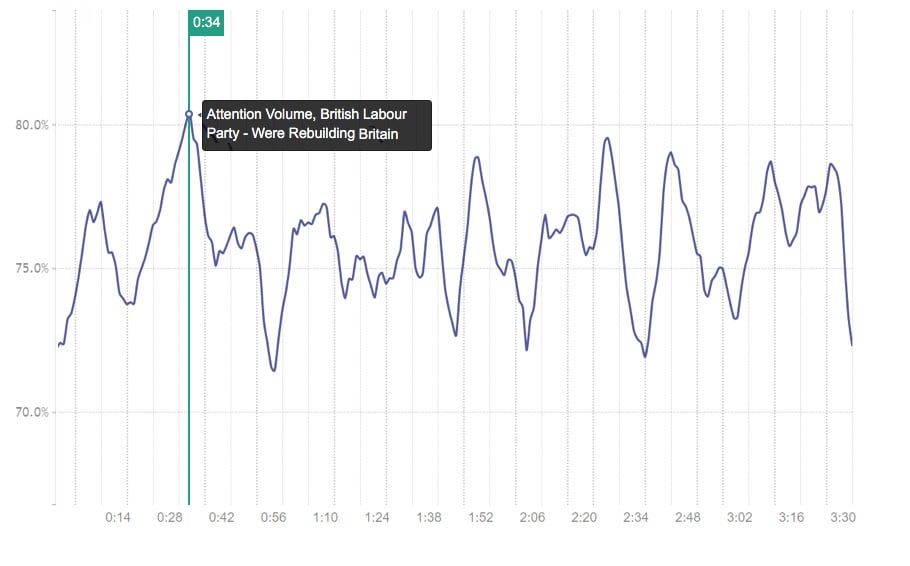
Attention is also strong with those who claim to be unemployed:
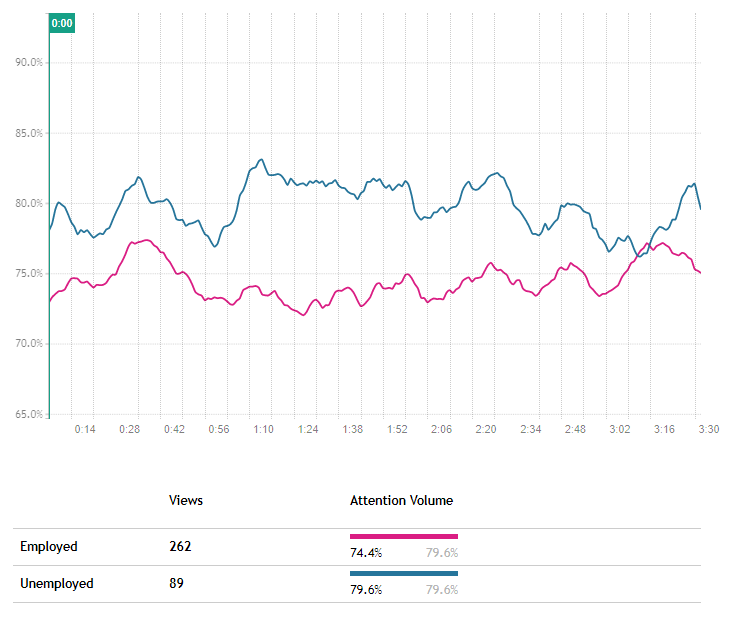
Why is this the case?
Labour’s “We’re Rebuilding Britain” paints a bleak picture of an economy broken by years of negligence (“we lost the factories… we lost the jobs…”), before pivoting to explain Labour’s “plan to kickstart the economy” – creating “good jobs for the long term”, stimulating local communities with regional investment banks, among other things.
It’s a message designed to resonate with those who are unsatisfied with the status-quo. Not only the message, but the tone – unflashy images, narrated in a Lancashire accent – has a distinctly ‘normal’ feel. To that point, it is much more compelling for those who live outside of London:
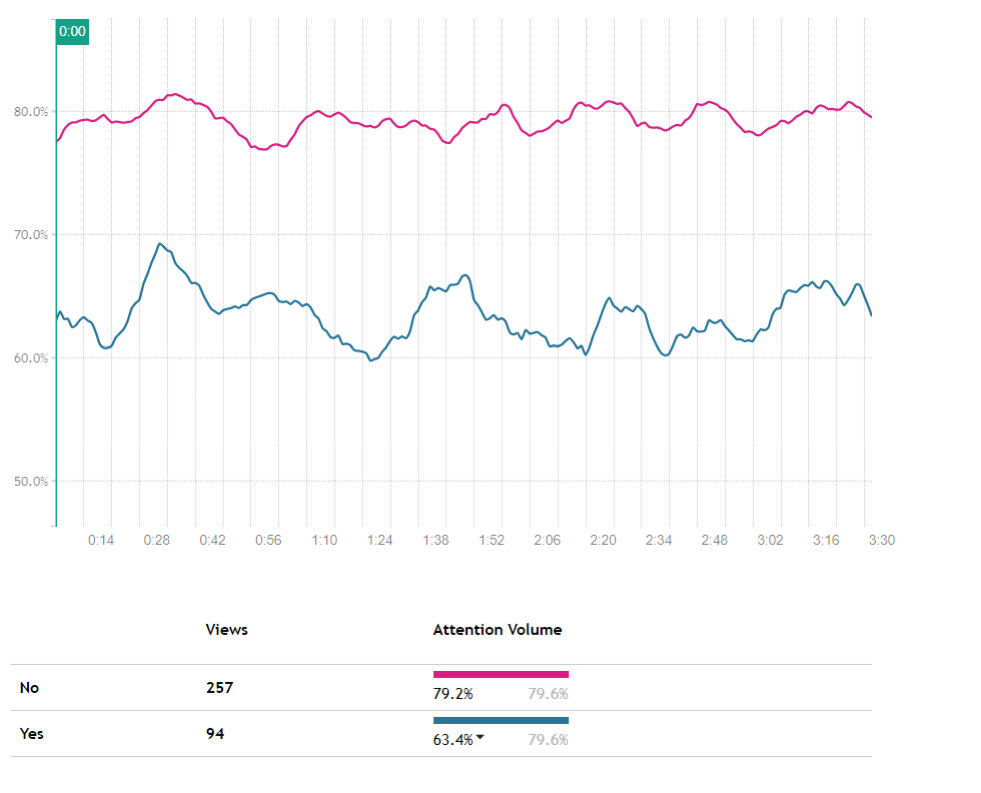
However, the picture is muddied when we take verbatim sentiment (the audience’s written comments) into account. Take the comparison between university educated (‘Yes’) vs. Non-university educated (‘No’) viewers:

The ‘No’ audience is more negative about the video than the ‘Yes’ audience.
Comments from the ‘No’ audience include:
- “What a load of rubbish! There were no answers as to how they're going to fund any of these laughable ideas!”
- “It was very cheesy. There were a lot of empty promises with no explanation as to how plans would be implemented.”
- “Typical Labour party, promising everything but no mention of where the money comes from. Last time they were in power they bankrupted the economy, so why would you trust them EVER again?”
While the video is certainly compelling, it fails to convince some viewers that the promises can be delivered.
3. Brexit Continues to Define Everything
We also asked our audience whether ‘the UK should leave the EU regardless of whether we have a deal or not?’
It split the audience quite neatly – 52% against, 48% in favour – almost a reverse of the 2016 referendum result!
Those in favour (‘Yes’) showed more disgust throughout Labour’s ad, expressing very negative sentiments:
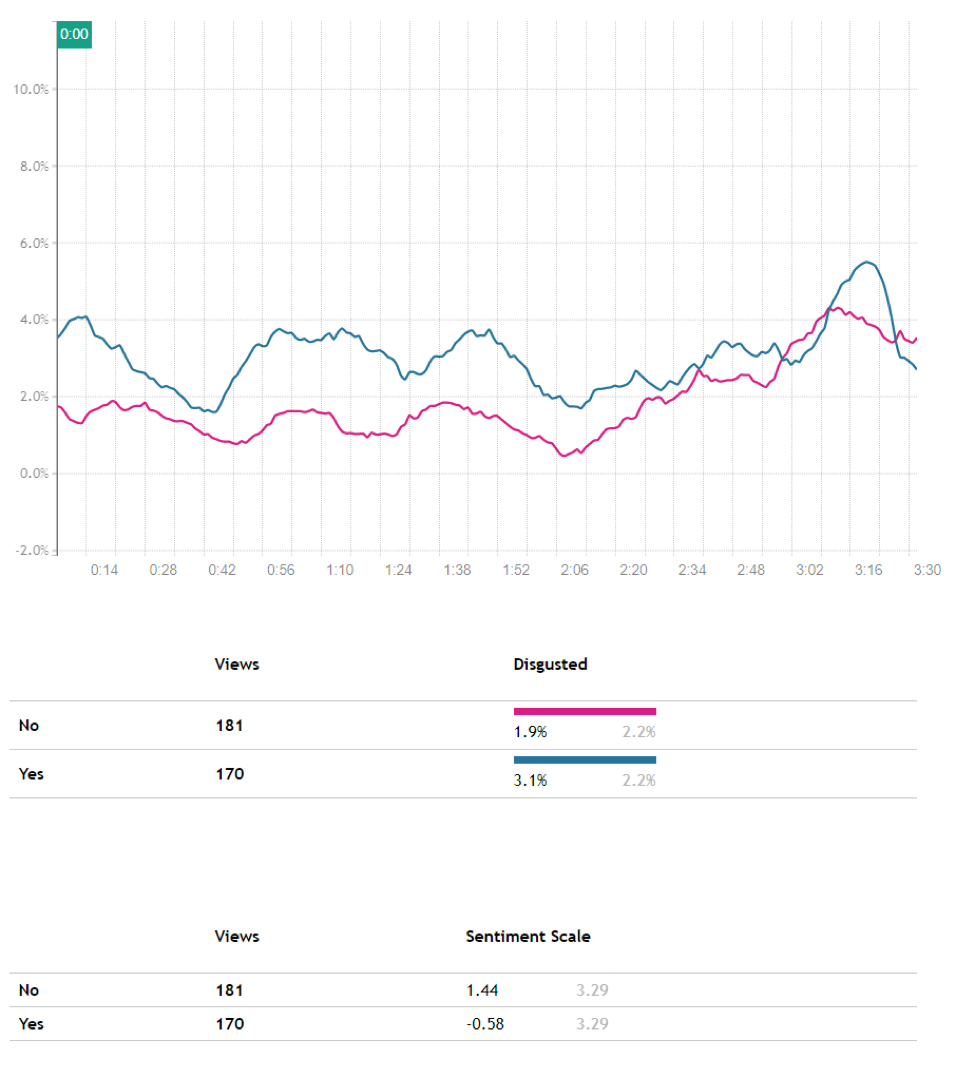
We see a similar but inverted contrast in the Conservatives’ “Vision for Britain”. No-Dealers are concentrating throughout the video (labelled as ‘Confusion’ here) and are left feeling much more positive. The sentiment between ‘Yes’ and ‘No’ is much more polarised than by Labour’s video – a delta of 4.53 versus 2.02.
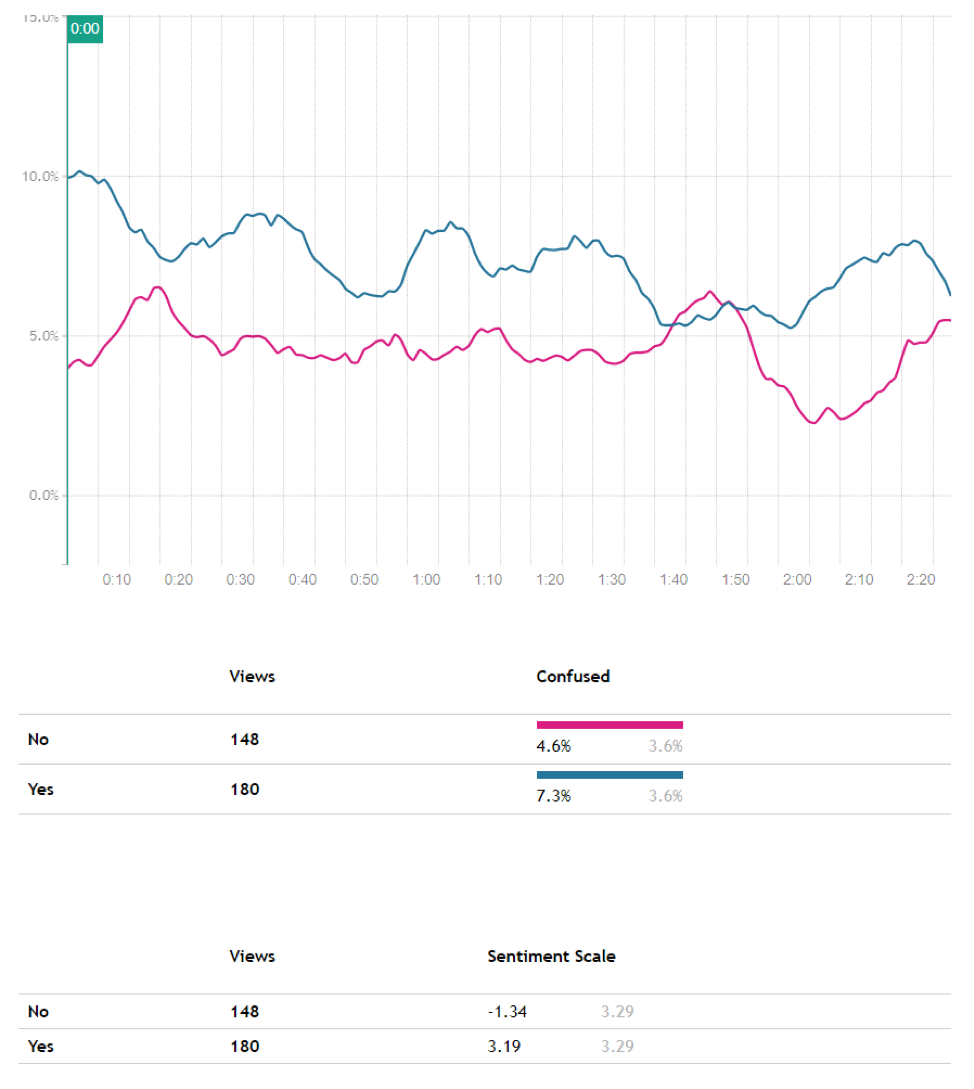
4. Who Wins Among The ‘Undecideds’?
We also asked the audience ‘Have you made your mind up already which party you want to vote for?’
Almost a quarter (24.6%) said no.
Among these viewers, while Labour’s ad produced more smiles (happy), the Conservatives’ ad won on attention and sentiment:
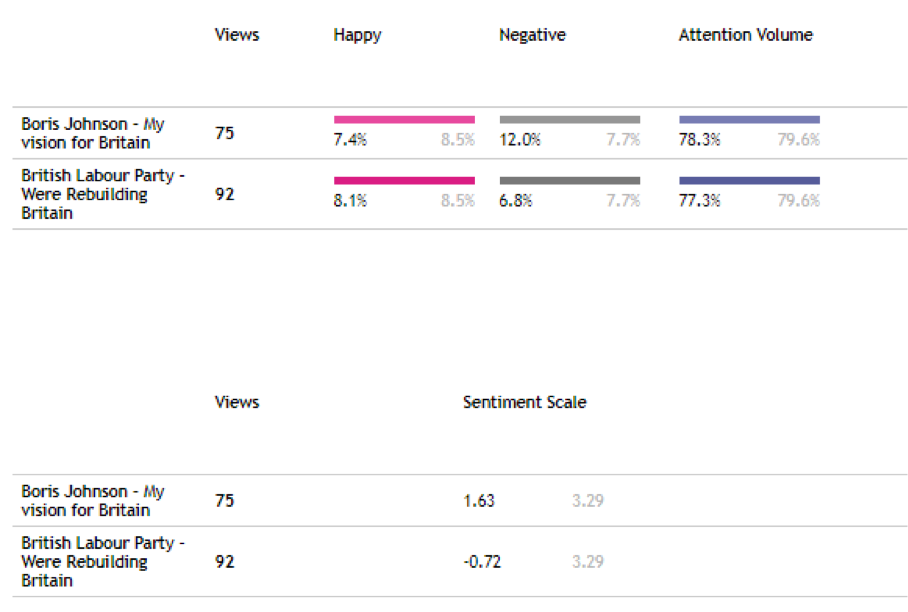
However, for Labour, there were promising signs among some swing voters:
“I have been brought up my entire life being told Labour are bad and they ruined the country last time they were in. This clip has now confused me as I agree with everything they said.”
However, there is still evidence that they have not redressed a lack of confidence in their leader, Jeremy Corbyn…
“Sorry but unbelievable with Corbyn as leader. Do not believe any of it with that excuse of a man in charge?”
In Conclusion…
There’s so much more to dig out here, but here's a few observations in summary:
- Both videos successfully gin up their own support. ‘Vision for Britain’ is particularly strong in this regard;
- Both aim for the head and the heart – clear policy proposals undergirded by sentimental (Labour) or swelling orchestral (Conservative) music. The old adage of ‘persuade through reason, motivate through emotion’ is certainly at play with both ads.
- However, speaking to a wider pattern of polarisation within UK politics, neither captures a positive response from a large proportion of the most crucial audience of all – ‘the Undecideds’.
Want to know more?
